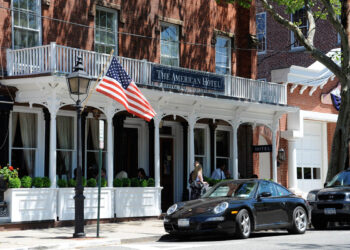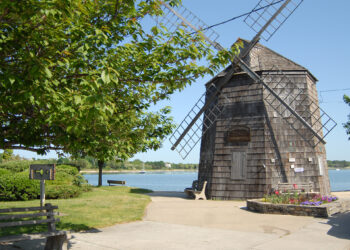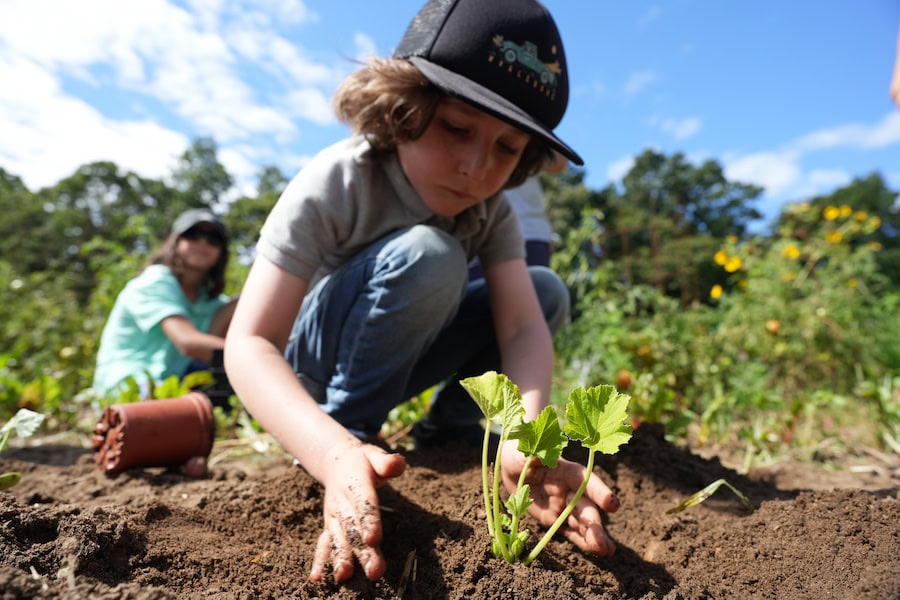
Farm Day Camp at Fireplace Farm, Springs is a premiere educational experience for kids that combines getting involved with farming, an immersive nature experience, and art and playtime, all of which are essential for development and embracing the fun of childhood.
The director of Farm Day, Maggie Touchette, spoke more about the programs offered, the history of the camp and its growth and evolution, along with what she is most looking forward to this season in their first year as a new organization under the name Farm Day.
What is the mission of Farm Day and what is the camp all about?
MT: Our mission is to get kids on the farm involved in the real work of farming. At the same time, we offer an immersion in nature, where play, art, and storytelling are highly valued. And, as a Waldorf-inspired program we treasure the innate wonder, magic, and joy of childhood, and aim to weave these elements into each day.
Can you talk about the history and evolution of the camp?
MT: For 17 years, this program was an extension of Harbor Waldorf School. The school actually grew out of the farm program. In 2007, a group of families wanted a Waldorf program for their children, and to start, created a summer program at the Ludlow Farm in Bridgehampton. The school was started shortly after, in a family home in Sagaponack, but eventually moved to Sag Harbor, where it resided until its closing in 2023.
Although we had a year-round space, we decided we would decamp each summer to the farm. In our opinion, there really is nothing better! After the Ludlow Farm, we spent some time at Amber Waves, but finally landed at Fireplace Farm in 2016. Once we arrived at Fireplace Farm, we truly felt that we had found the perfect home. It’s an absolutely idyllic property, but more importantly, the farmer, Paul Hamilton, really invited us to work on the farm in a way that had not been possible in other settings. He allows us to treat the farm as a shared space and welcomes our collaboration in the care for the land.
There was also an element of synergy with the farm’s owners, Maxwell and Oliver Ryan. Maxwell, in his first career, was a Waldorf teacher at the Rudolf Steiner School in Manhattan, and helped found the New Amsterdam Waldorf School. So, support of the Ryan family runs very deep!
When Harbor Waldorf School closed, I decided to keep the summer farm program open as a new organization but offering the same program that we have honed (and loved!) over the past 17 years.
What sets it apart from other camps on the East End?
MT: Being Waldorf-inspired certainly makes us unique. As Waldorf teachers, we strive to be really intentional in our interactions with the children, observe them closely, and offer thoughtful guidance through our specific lens of child development. There is also a magic to Waldorf—the way teachers weave wonder and music into each activity creates an environment truly unlike any other that I have encountered.
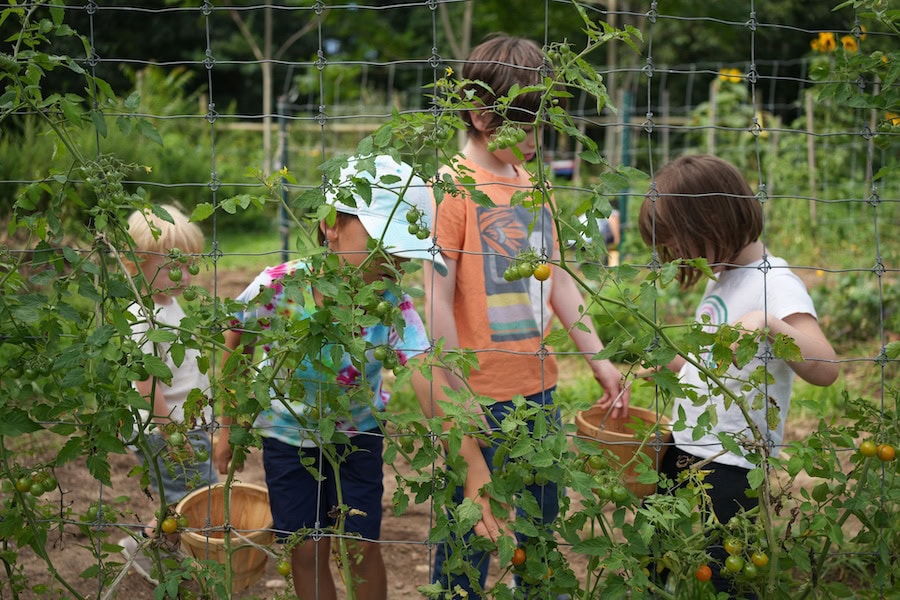
Why do you think it’s important for kids to learn about farming, especially at such a young age?
MT: Well, to start, we do it because it’s fun! The act of picking peas or pulling carrots can contain so much joy, and for me, this is reason enough at this age. That said, the learning that comes through the doing is an absolutely wonderful and essential byproduct. We need our kids to be connected to where their food comes from, more so now than ever, in a world that is becoming increasingly disconnected from that.
It also offers the opportunity to do some hard work—hauling buckets and such—and this is something that’s a bit lost in today’s culture for many children. So, giving them the opportunity to engage with the physical work of the farm is a good counterbalance to some of the sedentary, online work that may take up their school life.
Can you discuss the programs offered?
MT: We have two mixed age programs, one for ages 3-4, and another for ages 5-9. Both of these programs’ spaces are located right on the farm, just on the outside of the main field.
In the older group, we spend time each morning working directly with Farmer Paul on the day’s farm chores. This could be digging potatoes, laying compost, planting, feeding the chickens, weeding, etc. We work with the natural cycle of the farm, so it depends on the farm’s needs of the day. We also have an Art Tent where artistic endeavors can be created and shared. Songs, storytelling, and time for self-directed play round out each day.
In the 3-4s group, the same activities are offered, but at a slower pace more appropriate to the young child, and with greater care around transitions and social development.
How did you get started with the camp and can you tell us about your background?
MT: I started working at the camp in its second year, right after I finished my master’s in special education at Fordham. I moved out east full time the following fall to help start Harbor Waldorf School, where I worked as its director until my family moved to Porto in 2019.
What’s the biggest factor that contributes to Farm Day Camp’s success?
MT: I think families come for the farming. But that they stay for the relationships and the care that the teachers give to each child, and to creating a nurturing, imaginative environment each day.
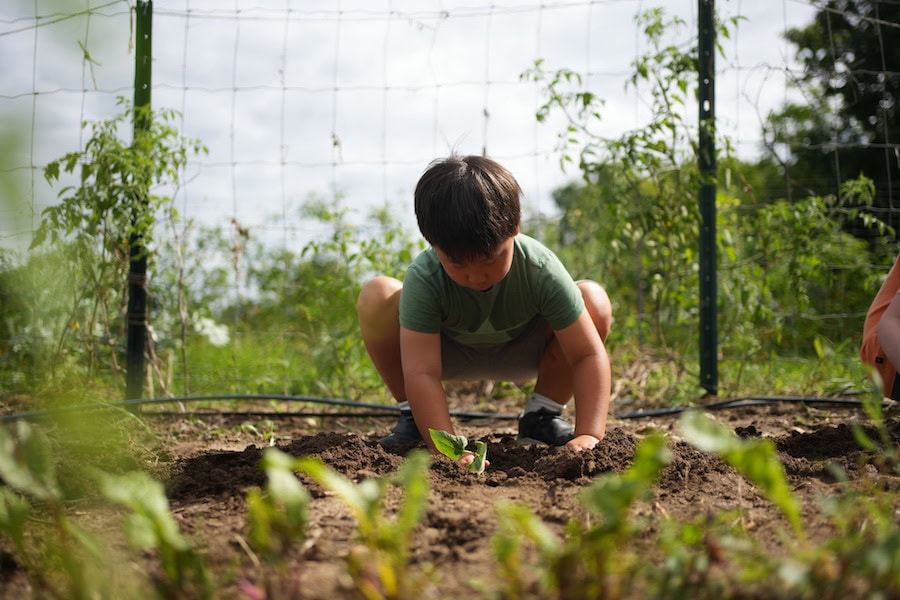
For more information about Farm Day camp, visit https://www.springsfarmday.com.


